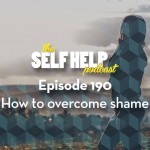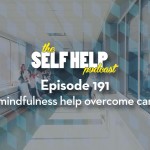Mindfulness and Cancer
It is that time of year when we look at what, for many is a scary issue, it is Cancer awareness day on the 4th Feb. Its main objective is to get as many people as possible to talk about cancer.
I find these podcast and blogs some of the most difficult to do. It can seem easy to be talking about what is often a life threatening condition to other people when you do not have it yourself. It is important not to sound like a clever dick.
According to Ed’s research eight million people across the world will die of cancer this years. Four million of these will be described as premature which I think means they are under the age of sixty nine. It reminds me of running the support services for the ‘Younger People’s Brain Injury Unit’, in this case younger meant anyone under the age of sixty five.
In Britain there have been recent news reports of how our health services are failing cancer patients when compared to other countries in Europe. For me this is all signs of our failing NHS. So cancer currently has a high profile in the news. However, if you follow any of the scientific or medical press you will also be aware of the breakthroughs and potential breakthroughs that are happening right now. Such advances are good news for us all.
In any case the predictions are that around fifty percent of use will, at some time in our lives, develop a cancer. However, the bit that people tend to not hear is that most of us will survive it and, I guess, the issues will be about learning to live with cancer rather than dying from cancer.
In this blog I want to look at the psychological issues around cancer and can Mindfulness help in some way. Before I do that I feel it is important to say that we should all get checked. We should be aware of our bodies so that we can notice any differences developing in our body. I once ran a B&B. In each of the showers were instructions for breast and testicular self examination, something that we should all do. If you know your breasts or your testicles and do a weekly examination you will know if there are any changes and be able to get medical advice early. I could also at this point talk about causes of cancer in what we eat, drink or smoke, but, let’s move to psychology.
Can our minds effects our bodies?
I would say ‘yes’, but there are limitations to that. If you were falling off a roof it would not matter how positive your thinking might be you will still hit the ground. With cancer this can be true if we have a genetic profile that gives us a high probability of developing a cancer, or any other disease. In some cases we may be able to make life style choices that hold it back, though in genetic cases it may be ‘when’ rather than ‘if’.
Life style will have a direct effect on your body. The evidence of the cancer producing effects of drinking, smoking, drug use and some food is now legion. Recently it has been suggested that if your roast potatoes are too crispy or your toast too brown then you are eating carcinogenic foods. In the sanity of life perhaps a little of what you fancy does do you good. Which takes us to psychology.
Personality and cancer
For a long time we have realised that many people will develop a post-traumatic response (PTSD) following a diagnosis of cancer. This suggests the importance of Psychological medicine being an active part of the medical model when dealing with a diagnosis. This may not just be for the patient but also for their family.
For many years, as I have worked with various psychotherapists we have collectively noted that there are certain types of personality that develop cancer. This does not detract from the two other types I mentioned, genetic and environment or lifestyle cancers. When we develop the traits of the Cancer – prone personality we are likely to exacerbate any existing disease. The Cancer – resistant personality is more likely to either avoid cancer or have a better time of it in dealing with and over coming existing disease.
Cancer-Prone Personality Types
[Often has a negative outlook on life and may generally feels unhappy with their lot]
• Represses both positive and negative emotions.
• Shows anger, resentment, or hostility towards others.
• Takes on extra duties and responsibilities, even when they cause stress.
• Reacts adversely to and does not cope well with life changes.
• Is negative or pessimistic.
• Becomes easily depressed or has feelings of hopelessness.
• Worries often and excessively about others.
• Feels the need for approval and to please others.
Cancer-Resistant Personality Type
[Maintains a positive outlook on life and generally feels happy with their lot]
• Expresses emotions in a positive and constructive way.
• Controls anger and resolves anger issues positively.
• Knows when to say no.
• Copes well with stress and feels in control of situations.
• Is optimistic and hopeful.
• Does not become easily depressed.
• Seeks out and maintains social support networks.
• Does not worry excessively.
• Likes to please, but does not seek approval as an emotional crutch.
Can Mindfulness Meditation aid recovery?
I have put some links here that may take you to further reading rather than just giving you my point of view, which is that yes it can. If you read people such as Louise Hay they would suggest that Mindful thinking and practise can even heal and overcome terminal illness. In this only you can decide that reality.
Mindfulness meditation has clinically relevant implications to alleviate psychological and physical suffering of persons living with cancer. Use of this behavioural intervention for oncology patients is an area of burgeoning interest to clinicians and researchers.
According to Andy Puddicombe of Headspace
Mind over cancer: can meditation aid recovery?
Trials have shown that mindfulness can increase calm and wellbeing, lead to better sleep and less physical pain.
I think that we know more about how the mind effects the body than we ever did. However I suspect that there is still a long way to go and that we are really just at the beginning of understanding what we are able to accomplish.
My post script is that we are going to die and we will all die of something. When I die they will not simply write on my death certificate that Sean came naturally to the end of his life, they will provide the reason why my body stopped working. Perhaps my heart stopped, or a vein in my brain burst, or I got cancer, Alzheimer’s, dementia, pneumonia or I simply had a accident. For us all, life will come to an end and while I support that for each of us life should be good honest and true we should not anticipate or worry about the ending where ever we are in life or whatever our state of health. Live in the moment, live in the day. As Buddha put it…
“Let us rise and be thankful
For today we learned a lot
And if we didn’t learn a lot
Then at least we learned a little
And if we didn’t learn a little
Well at least we didn’t get sick
And if we did get sick
well at least we didn’t die
So let us rise up and be thankful”
And when we do die with mindfulness we will be happy for the life that we have had for the company of those people that shared it with us.
Live in your moment and be happy
Sean x



Trackbacks & Pingbacks
[…] Sean wrote a blog post on this subject. Have a read… […]
Leave a Reply
Want to join the discussion?Feel free to contribute!